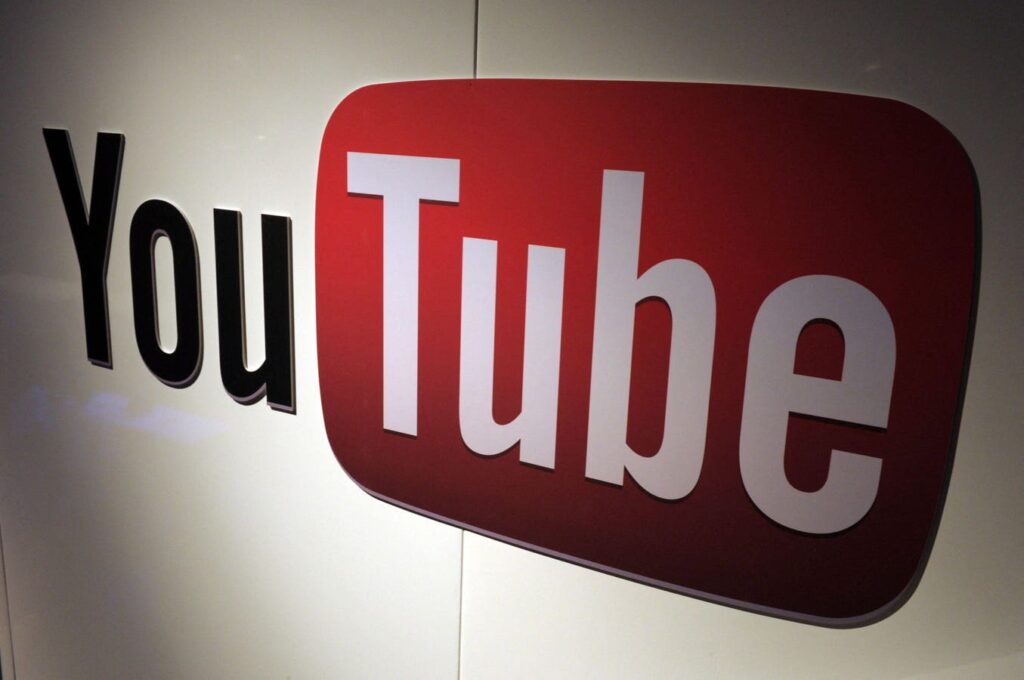Video-sharing service YouTube announced on Monday that in the coming weeks, it will update its … [+] approach to eating disorder-related content. (Photo by ERIC PIERMONT / AFP) (Photo by ERIC PIERMONT/AFP via Getty Images)
AFP via Getty Images
Video-sharing service YouTube announced on Monday that in the coming weeks, it will update its approach to eating disorder-related content. The service will call upon informed third-party experts to create a space for community, recovery, and resources while continuing to protect viewers.
“We worked with experts such as National Eating Disorder Association (NEDA) and Asociación de Lucha contra la Bulimia y la Anorexia (ALUBA) to develop a comprehensive framework that involves expanding the scope of our Community Guidelines, age-restricting certain videos, and surfacing crisis resource panels under videos discussing eating disorders,” Dr. Garth Graham, director and head of YouTube Health, wrote in a company blog post.
YouTube already had policies in place that banned videos that glorified or promoted eating disorders, but moving forward, it said it would update its community guidelines to also prohibit content about eating disorders that feature imitable behavior, or behavior that it worked with experts to determine could lead at-risk viewers to imitate.
That will include disordered eating behaviors, including purging after eating or severely restricting calories, as well as weight-based bullying in the context of eating disorders. In addition, videos that are centered on eating disorder recovery or include a sufficient educational, documentary, scientific, or artistic context (EDSA) may receive an age restriction and/or a crisis resource panel.
“Content that contains EDSA or discusses disordered eating behaviors in the context of recovery may still not be suitable for all ages, so we’re introducing age restrictions on certain content about eating disorders,” YouTube’s Graham added.
Beginning this week, the service has added eating disorder resource panels that will appear below relevant videos in the US, UK, India, Canada, Japan, Korea, Mexico, France, and Germany, with more regions to come in the future.
YouTube Not Alone In Addressing Eating Disorder Content
YouTube is not the only social media platform that is seeking to deal with content that could lead to eating disorders. In July 2021, Pinterest announced it would prohibit all ads with weight loss language and imagery. It became the first major platform to prohibit all weight loss ads and was an expansion on its ad policies that had already banned body shaming and dangerous weight loss products or claims.
TikTok also updated its community guidelines to ban content that could be seen to promote eating disorders after the service was called out for allowing such problematic hashtags as #skinnycheck and #sizeO to be searchable on the video-sharing app in late 2021.
Following pushback, in February 2022, TikTok announced it would remove any content that explicitly promotes eating disorders and to acknowledge symptoms that could include over-exercising and short-term fasting – among others that are frequently under-recognized signs of a potential problem.
Are the Services Going Far Enough?
Questions could be asked why the platforms — including YouTube — didn’t respond to these concerns earlier, but also whether more could be done across all of social media.
“Banning content that ‘glorifies or promotes eating disorders’ is a start,” said Allison Arnett, lecturer and clinical program coordinator in the School of Health Science at the University of New Haven. “It can be assumed that those who seek these videos are looking for guidance, advice, or a community to affirm their disordered thoughts.”
The newly implemented age restrictions for videos could be important as much of the content available around eating is not created by individuals with education or expertise. As a result, too many videos promote imitable behaviors, specifically for adolescents who at the highest risk of eating disordered behavior.
More could be done.
“But it sounds as though there will still be space for videos about recovery which is still concerning,” added Arnett.” While for some, hearing someone else’s journey might promote connection and acceptance for others it could be triggering and there is no way to know which it will be. These conversations, in my opinion, would be best conducted under the guidance and expertise of professionals specializing in disordered eating.”

